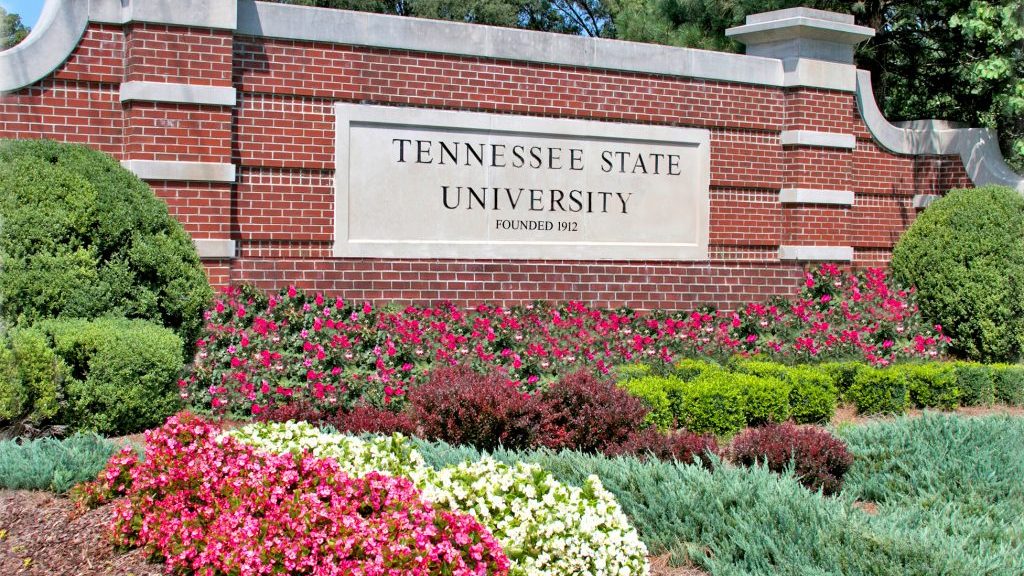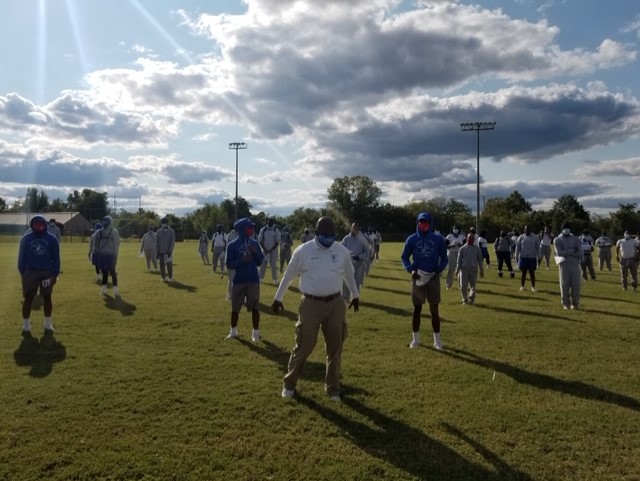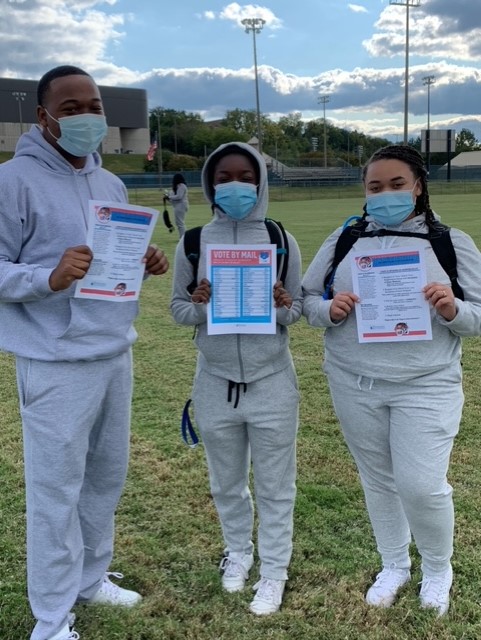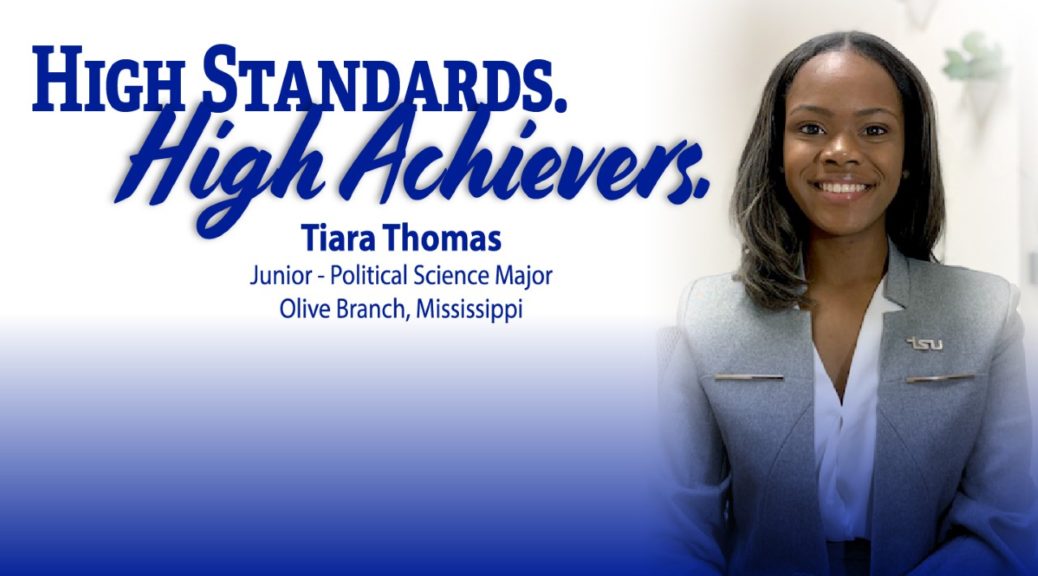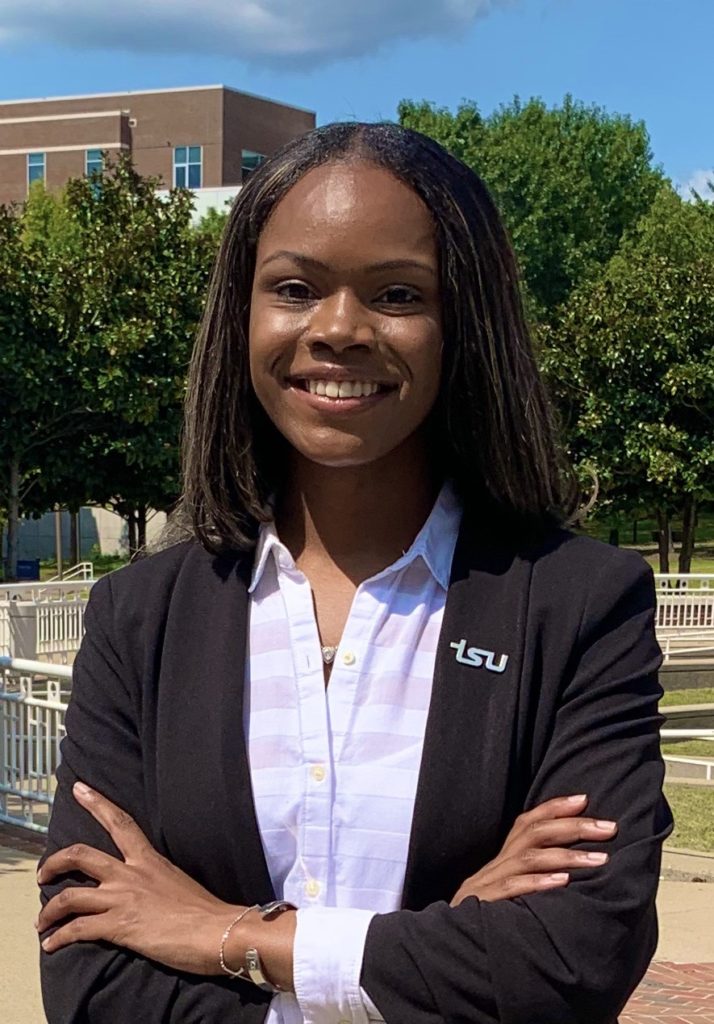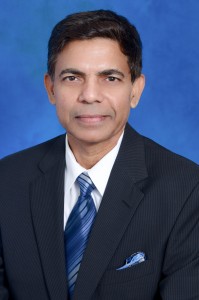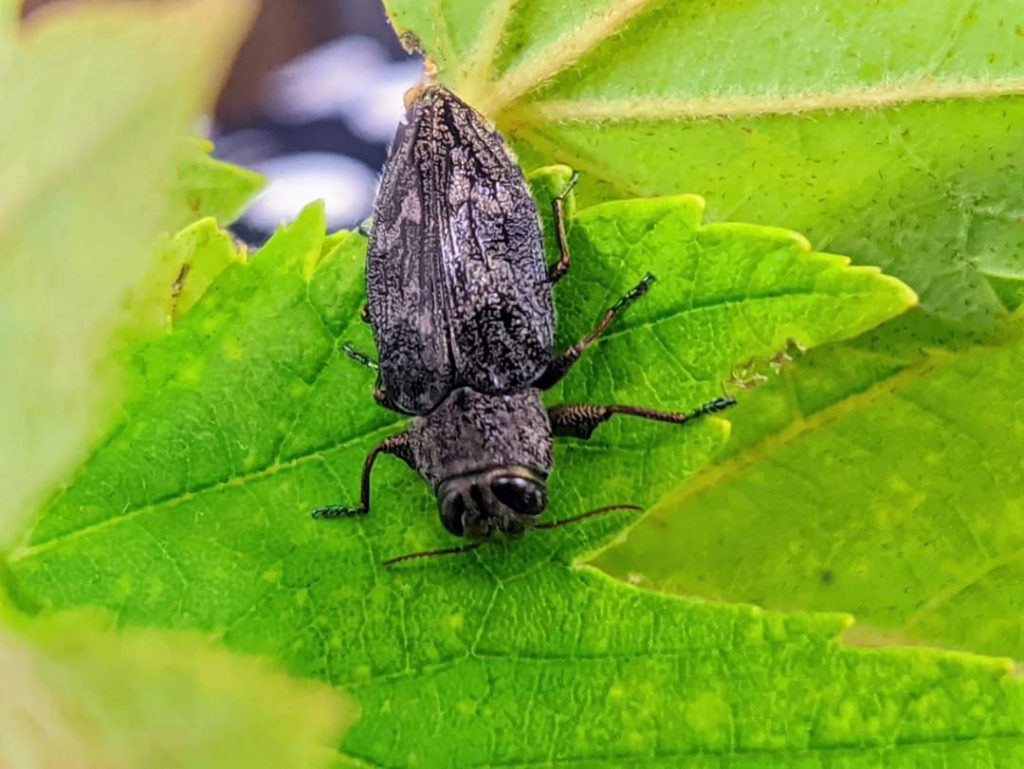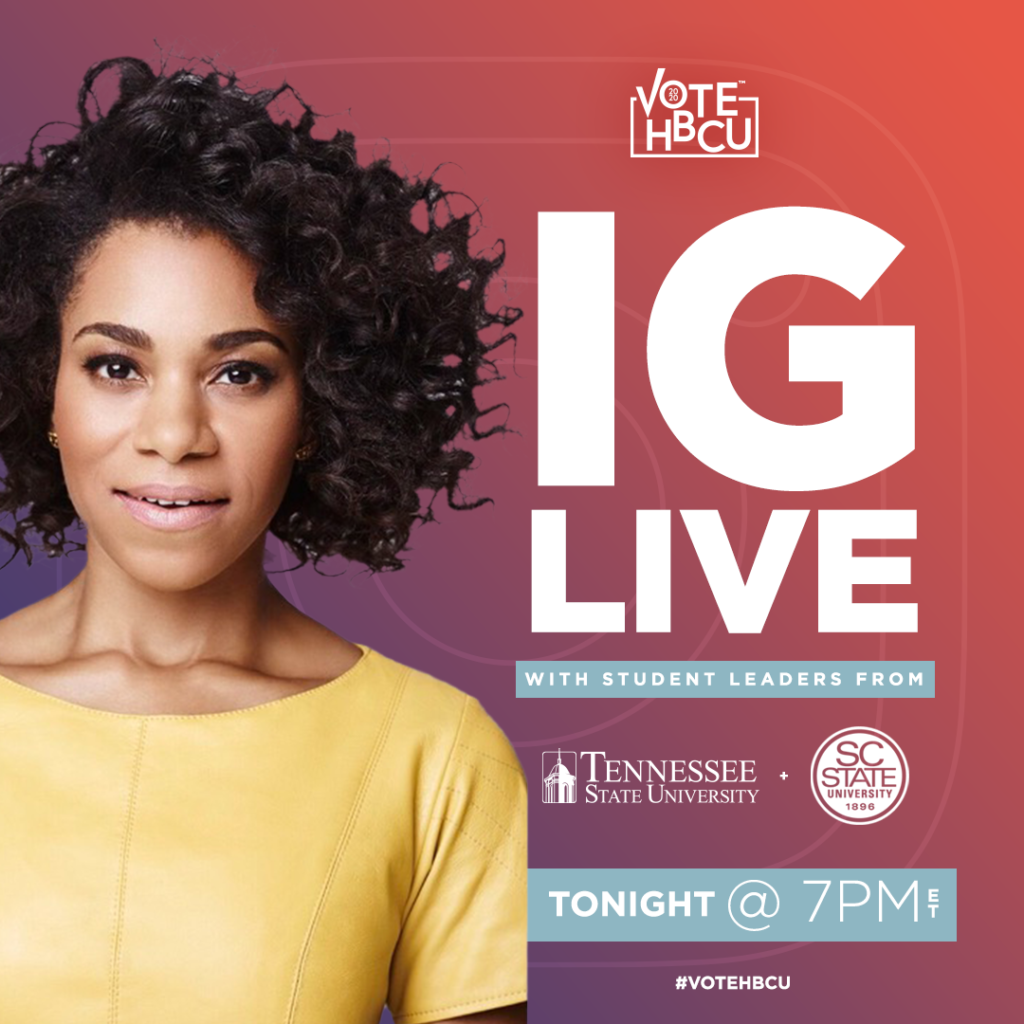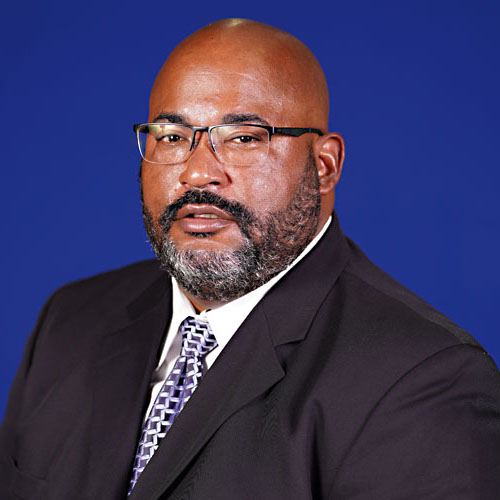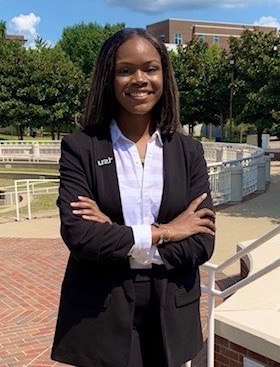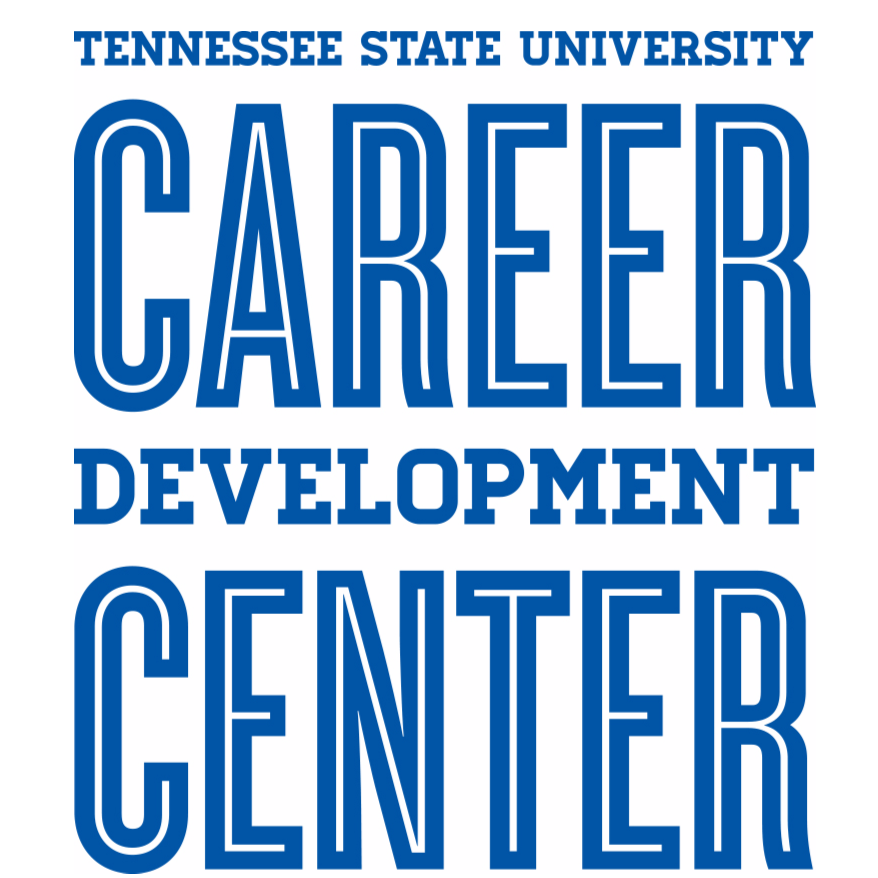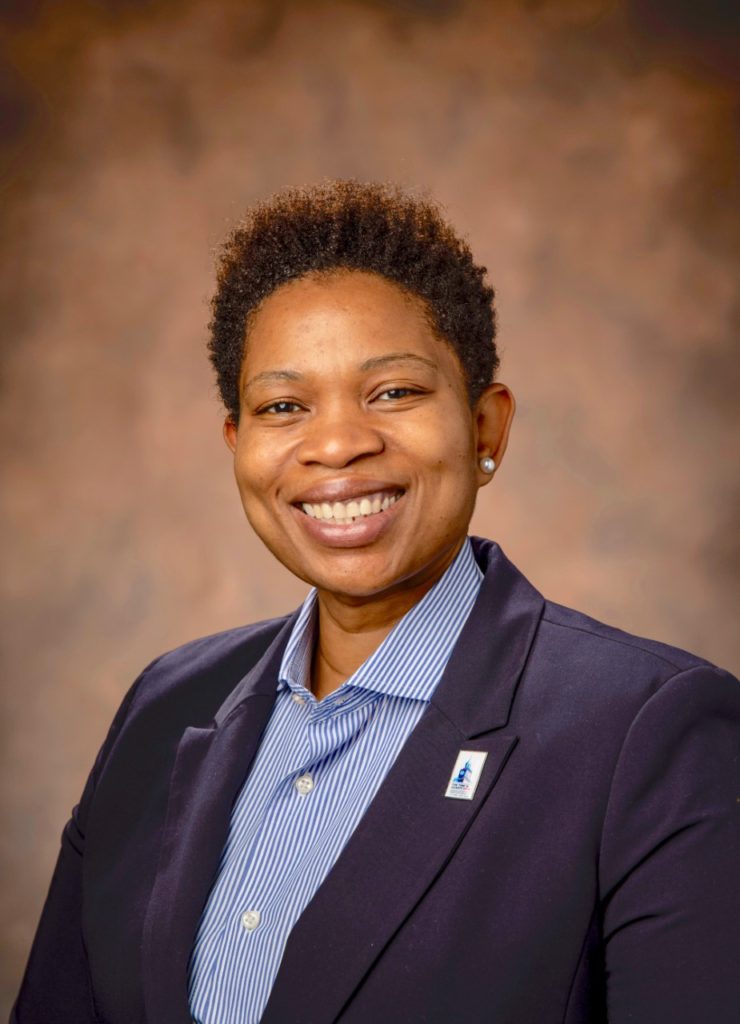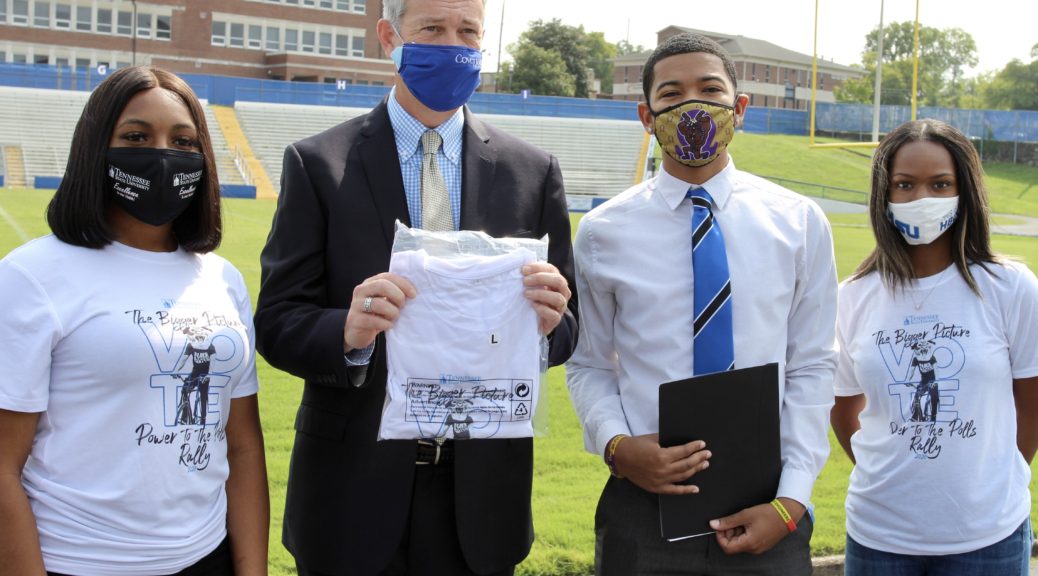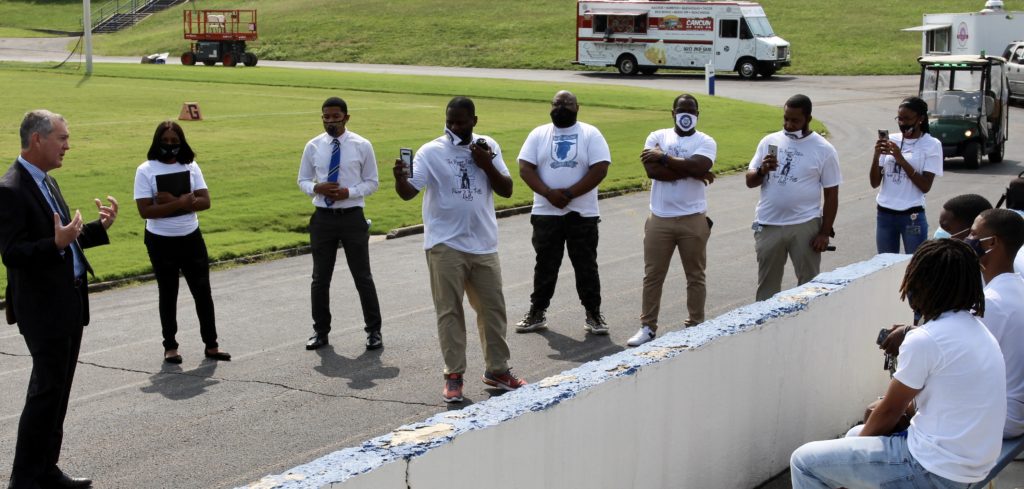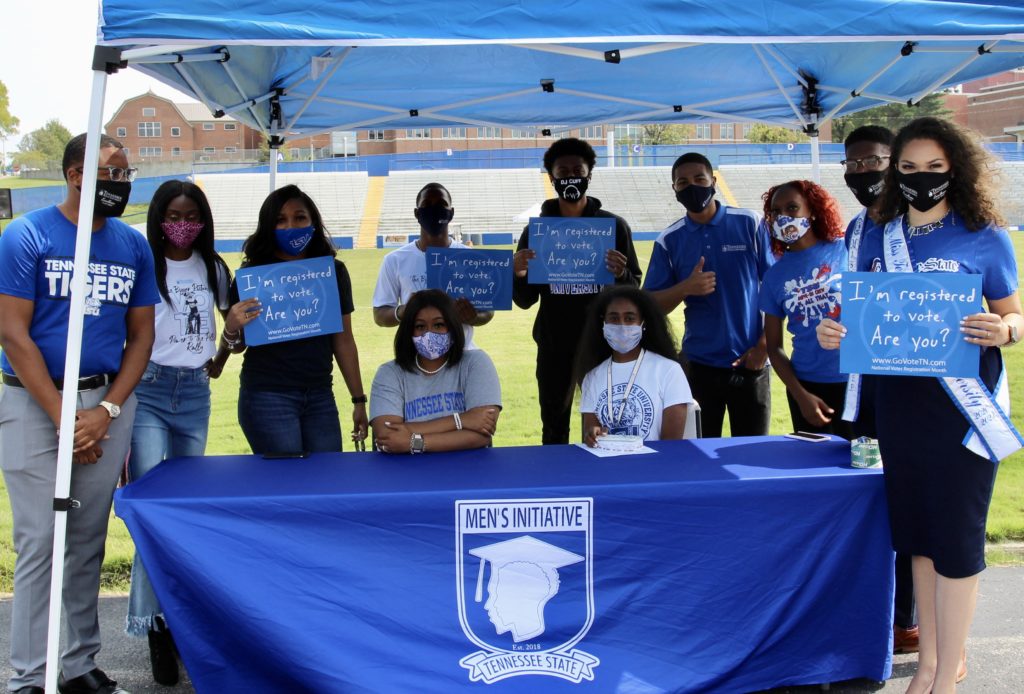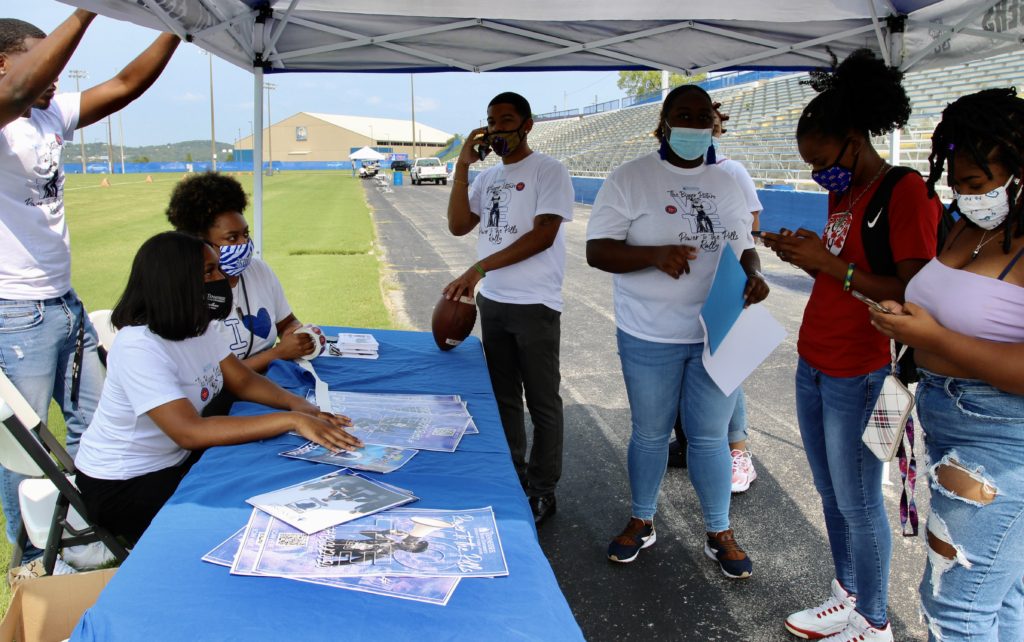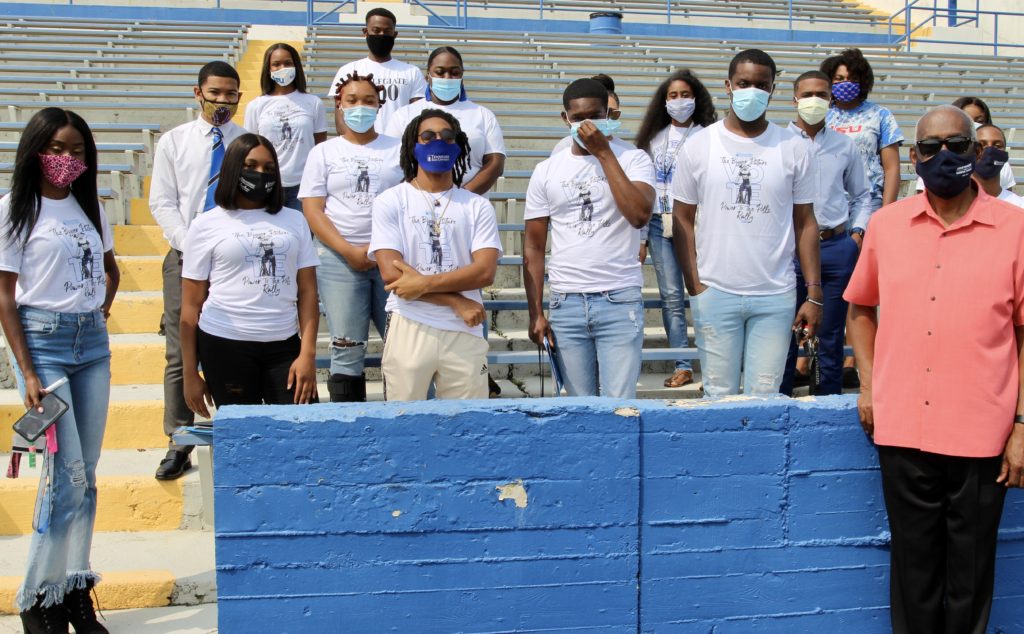NASHVILLE, Tenn. (TSU News Service) – Dream of an initiative that puts smart devices in students’ hands and gives them a space to learn, explore and play all at the same time. Through a partnership with Vulcan Materials Company and its visionary The Yard initiative, students at Tennessee State University now have that opportunity with an all-new Dream Space.

Uniquely located in the Floyd Payne Campus Center, and equipped with Apple TVs, iPads, multiple monitors with camera systems, ideation resource tools and eco-furniture, the set-up in the Dream Space allows students to achieve collaborative learning.
“I am just super excited about this Dream Space; it is awesome,” said Destiny Pennington, a junior public relations major from Detroit, at the virtual ribbon-cutting ceremony for the new innovation center.
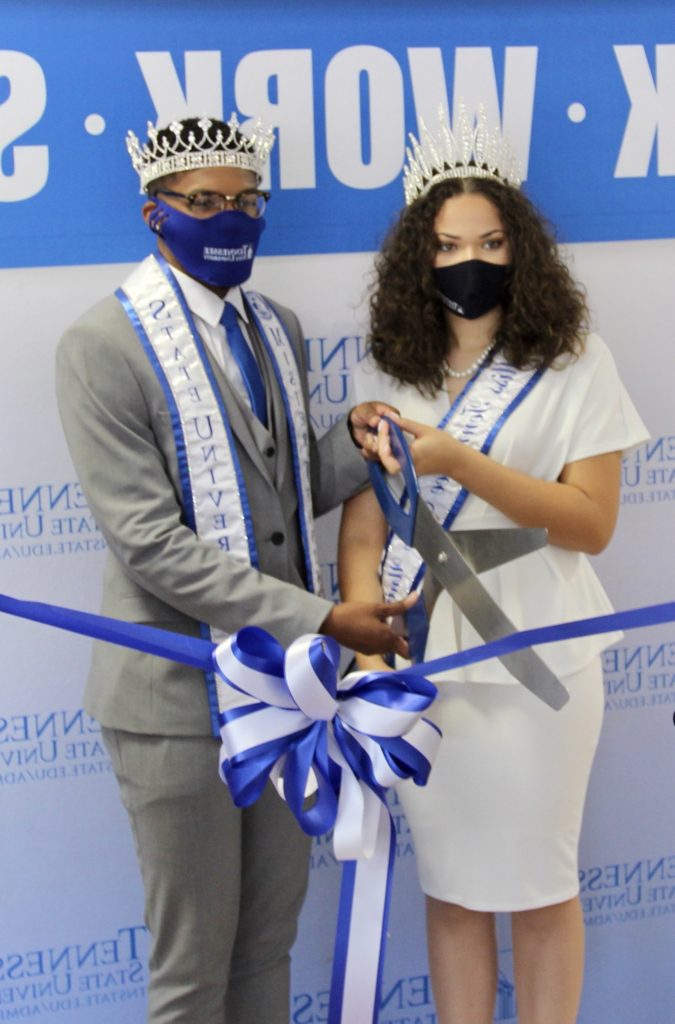
Fellow student Jeffrey Reed, a freshman business administration major from St. Louis, Missouri, was equally elated.
“Just imagine a place where you can sit right on campus and interact with CEOs from anywhere and gain knowledge about the professional world. This a great opportunity for students at this university,” Reed said.
President Glenda Glover recently led a host of university administrators, Vulcan officials, and student leaders in a virtual ribbon-cutting ceremony, highlighting TSU’s commitment to support student ideas, scholarships and internships. The president described the Dream Space as “a major, positive investment in our students.”
“When you invest in TSU, you are investing in our best and brightest,” she told Vulcan Materials Company and its partner, The Yard.
“I would like to personally thank you for helping TSU to continue to empower tomorrow’s generation today. The Dream Space Reveal today would not have been possible without your generous contribution. We recognize your commitment to equity, inclusion and diversity. We welcome your commitment to our students.

Last year, Vulcan Materials Company announced plans to support academic excellence programs at historically black colleges and universities. The company partnered with The Yard and built “a unique relationship” with HBCUs in the Southeast, including TSU. The company said Dream Space connects tech, talent and culture to advance innovation, infrastructure and inclusion, as well as a way for students to achieve academic success through technology and virtual learning to become entrepreneurs and successful employees.
As part of the initiative, Vulcan and The Yard also launched the “Pitch Competition, as a pipeline for HBCU “students to go from classroom to boardroom.” The competition allows students to submit and defend innovative ideas. The winning idea is pitched to companies and industry leaders.
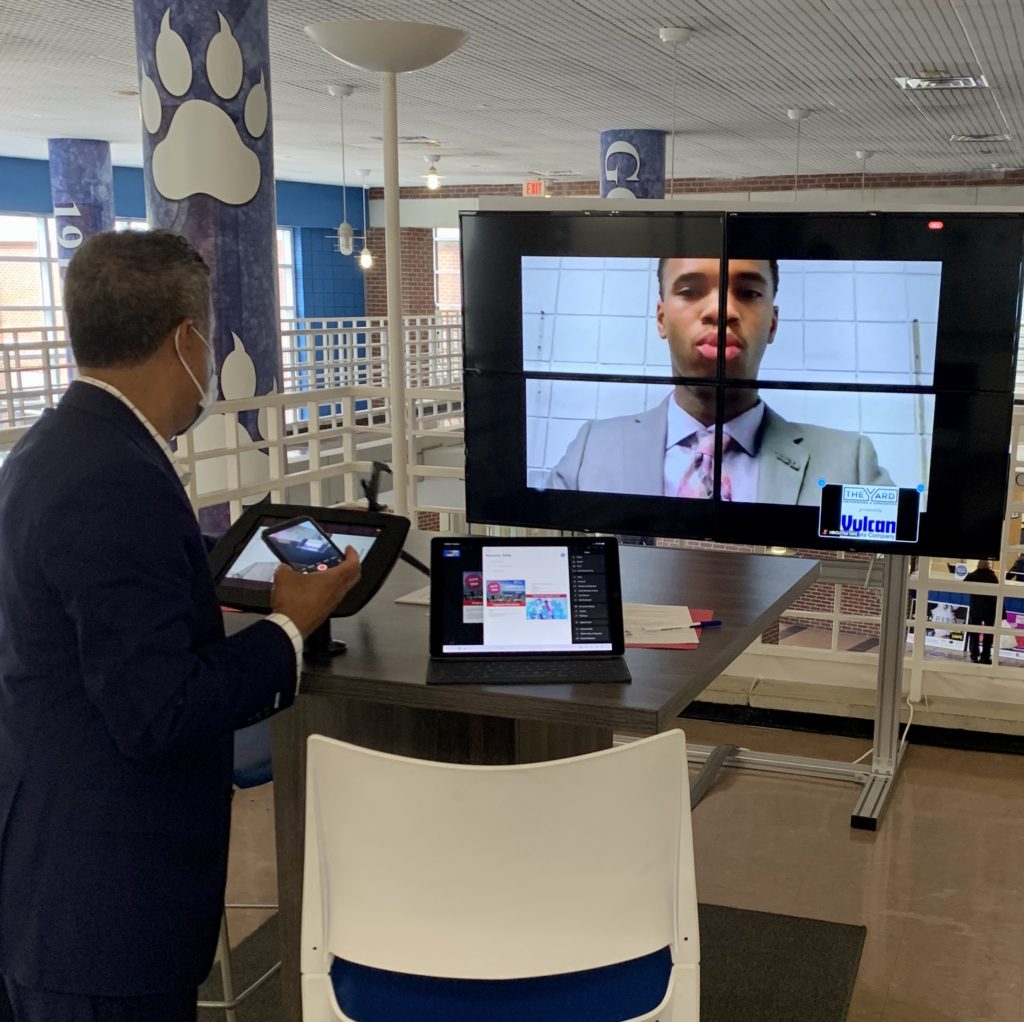
Darren Hicks, vice president of human relations for Vulcan materials Company, who led a team to TSU last year, said through the partnership with The Yard, Vulcan made a commitment to create opportunities for students through scholarships and internships.
“When we visited Tennessee State University last year, we all confirmed that the talent that exists at TSU must also become part of our Vulcan family,” Hicks said. “So, we are all excited to be a part of launching our second season with students here in our Pitch Competition. We are excited to be here as part of the unveiling of the Dream Space, and we look forward to strengthening the relationship with TSU.”
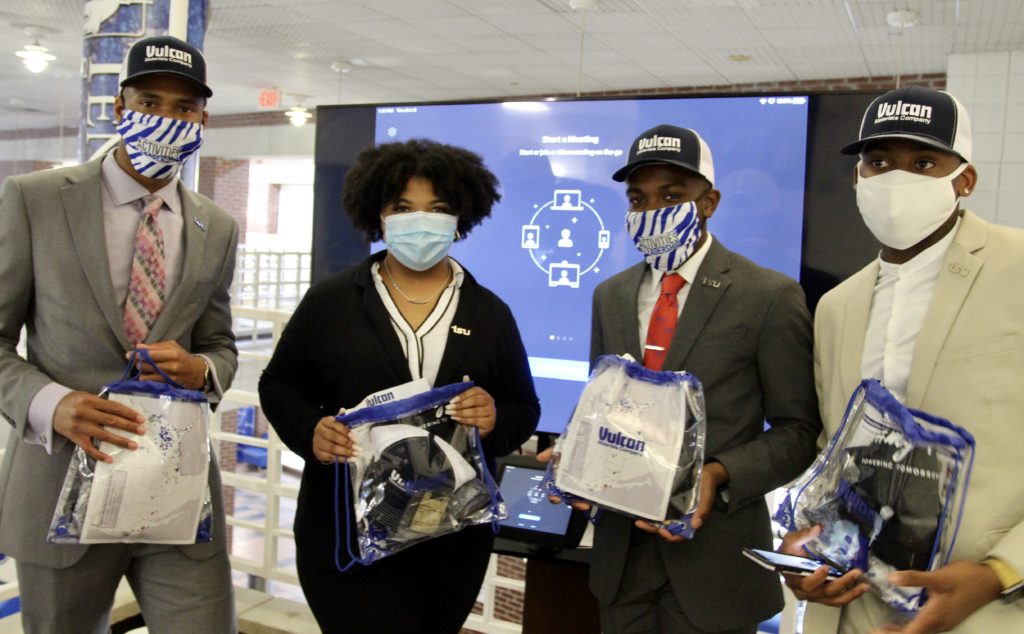
Erskine “Chuck” Faush, cofounder and chair of The Yard, said the goal of the Dream Space is to create and invest in students with physical spaces to encourage and empower global learning. He said the $1 million commitment from Vulcan Materials to fund student ideas and collaboration, scholarships, internships, career placements and Dream Spaces are supporting local communities and global economies.
“Thanks so much for allowing us to be a part of the TSU family. This is the place where excellence lives,” Faush said. “We are really happy and moved to be a part of the next generation of leadership. Our goal is classroom to boardroom.”
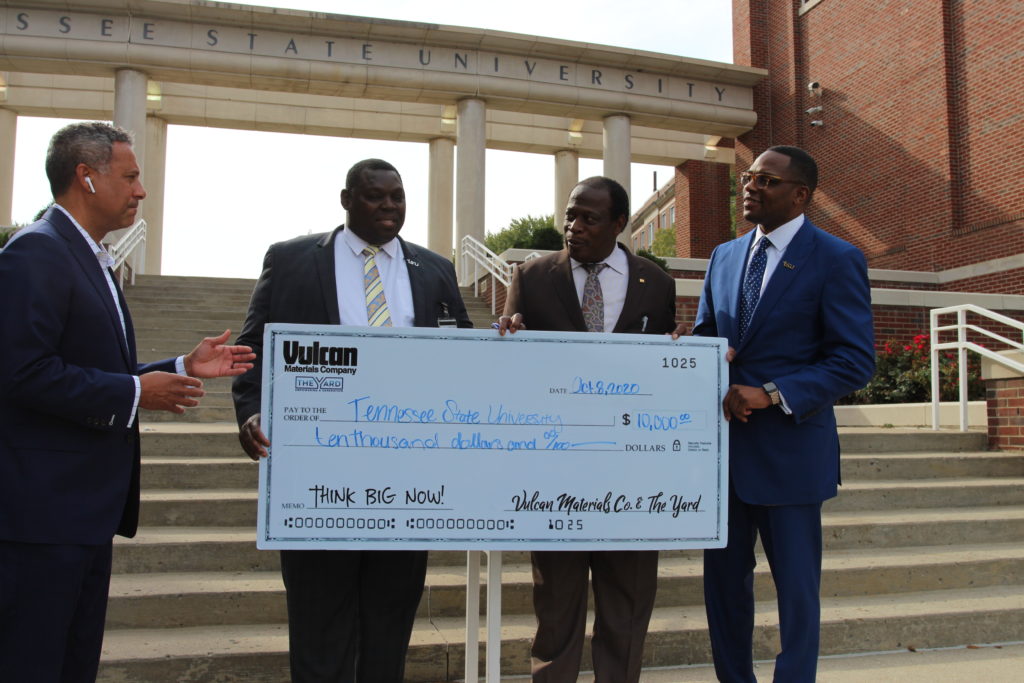
He said the Pith Competition, which started last year, has awarded more than $100,000 in scholarships and grants. Six TSU students participated in the Pitch Competition Oct. 8, with ideas ranging from app development for critical needs, to innovative ways to improve campus life, like a cybercafé. The top three winners were: Widmark Cadet, first place, $4,000; Tredarius Lassiter, second place, $2,500; and Destiny Pennington, third place, $1,500.
“We created the Pitch Competition, Leadership Talks and Dream Spaces so employers can experience first hand how talent, connectivity and collaboration drive growth,” Faush said, as he presented the Vulcan check to the university for $10,000 to support the student winners at TSU.
Terrance Izzard, associate vice president for Admissions and Recruitment; Dr. Curtis Johnson, chief of staff and associate vice president for administration; and Ashley Daniel, chief engagement officer The Yard/FSE, worked with Vulcan Materials and The Yard to coordinate the setup of the Dream Space.
Izzard described the Dream Space as a place for students to share ideas, collaborate around entrepreneurship opportunities, and educational and professional development.
Department of Media Relations
Tennessee State University
3500 John Merritt Boulevard
Nashville, Tennessee 37209
615.963.5331
About Tennessee State UniversityFounded in 1912, Tennessee State University is Nashville’s only public university, and is a premier, historically black university and land-grant institution offering 39 bachelor’s degree programs, 24 master’s degree programs, and seven doctoral degrees. TSU is a comprehensive research intensive institution with a R-2 Carnegie designation, and has a graduate school on its downtown Avon Williams Campus, along with the Otis Floyd Nursery Research Center in McMinnville, Tennessee. With a commitment to excellence, Tennessee State University provides students with a quality education in a nurturing and innovative environment that prepares them as alumni to be global leaders in every facet of society. Visit the University online at tnstate.edu.

